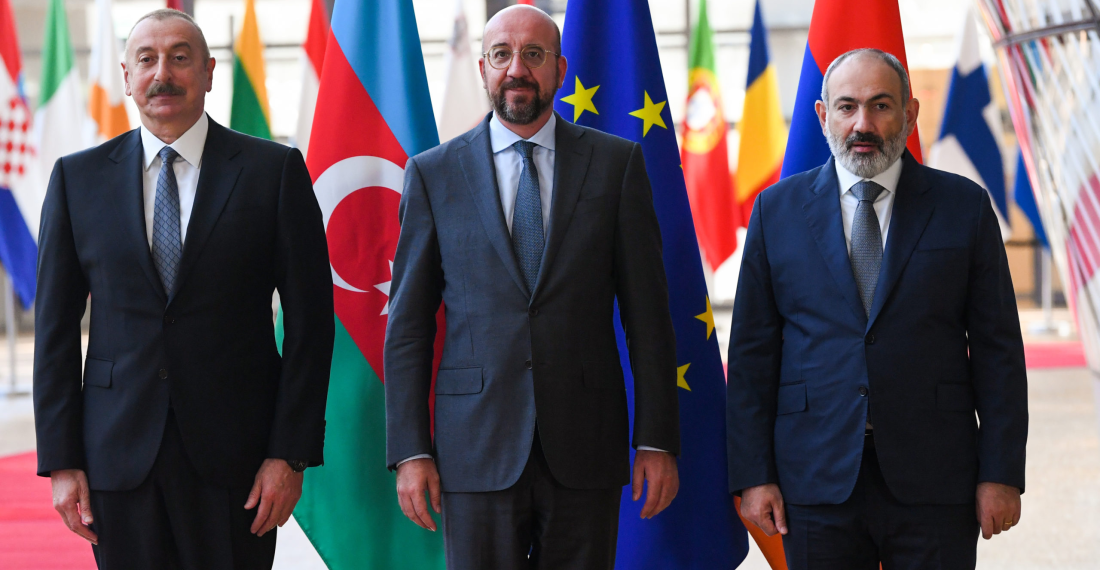The European Union has officially confirmed that the Armenian Prime Minister Nikol Pashinyan and the Azerbaijani President Ilham Aliyev will meet in Brussels this Sunday (14 May).
The official announcement comes after a claim made in the Financial Times yesterday (8 May) about the two leaders meeting in the Belgian capital this weekend.
In a statement, the EU said "President Michel has continued to be in close contact with the leaders of Armenia and Azerbaijan to advance the EU’s efforts to promote stability in the South Caucasus and normalisation between the two countries," before announcing the trilateral meeting in Brussels on 14 May.
The statement adds that this meeting in Brussels will be "flanked" by a meeting with French President Emmanuel Macron and German Chancellor Olaf Scholz on the sidelines of the upcoming European Political Community summit in Chisinau, Moldova, on 1 June 2023.
In addition to this, the EU also said that Pashinyan and Aliyev have "agreed to continue to meet trilaterally in Brussels as frequently as necessary to address ongoing developments on the ground and standing agenda items of the Brussels meetings".
President Michel has also invited Pashinyan, Aliyev, Macron and Scholz to meet again at the third summit of the European Political Community in Granada, Spain, in October.
Washington talks yield "tangible progress" between Armenia and Azerbaijan, but differences on key issues remain
The announcement from the EU comes after several days of talks between Armenian and Azerbaijani delegations in Washington D.C. last week.
In a joint statement released after the conclusion of the talks on Thursday (4 May), Armenia and Azerbaijan said that "[foreign ministers Ararat Mirzoyan and Jeyhun Bayramov] and their teams advanced mutual understanding on some articles of the draft bilateral Agreement on Peace and Establishment of Interstate Relations, meanwhile acknowledging that the positions on some key issues remain divergent."
Last week, US Secretary of State Antony Blinken said at the closing session of the talks that "the two sides have discussed some very tough issues over the last few days and they’ve made tangible progress on a durable peace agreement. I hope that they see – and I believe that they do, as I do – that there is an agreement within sight, within reach."
Equally, in a press briefing on Monday (8 May), Vedant Patel, Principal Deputy Spokesperson of the US Department of State, said that Armenia and Azerbaijan have agreed in principle to certain terms and have a better understanding of each other’s points of views.
"Last week’s discussions were constructive, and we believe that the delegations from Armenia and Azerbaijan made significant progress in addressing difficult issues. Both countries [...] agreed in principle to certain terms and have a better understanding of each other’s points of views," he said.
"And we believe that with additional goodwill and flexibility and compromise, that an agreement is within reach, and we continue to provide full support and engagement from the United States as the two countries continue to engage in dialogue and continue to secure a durable and sustainable peace."






